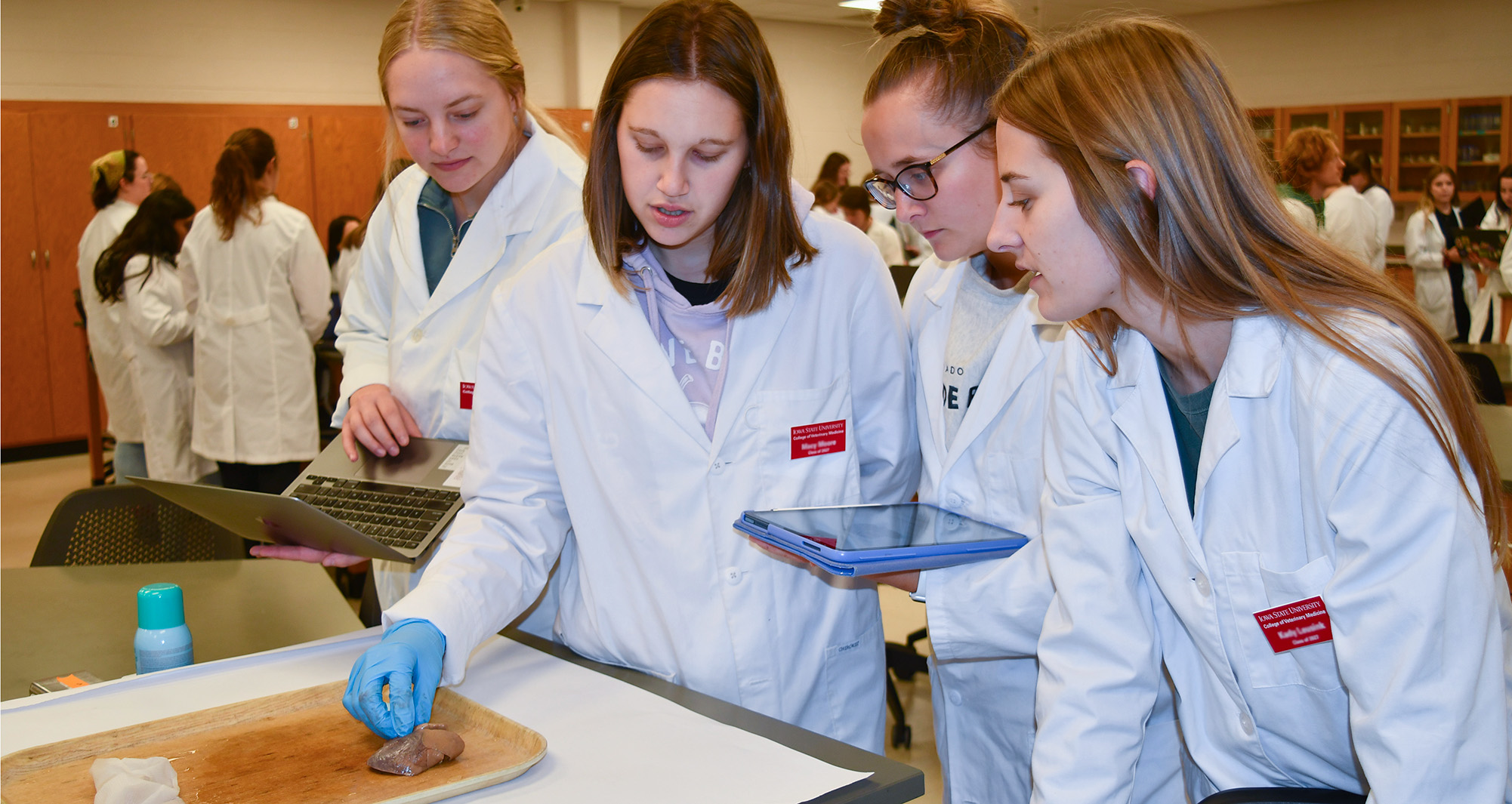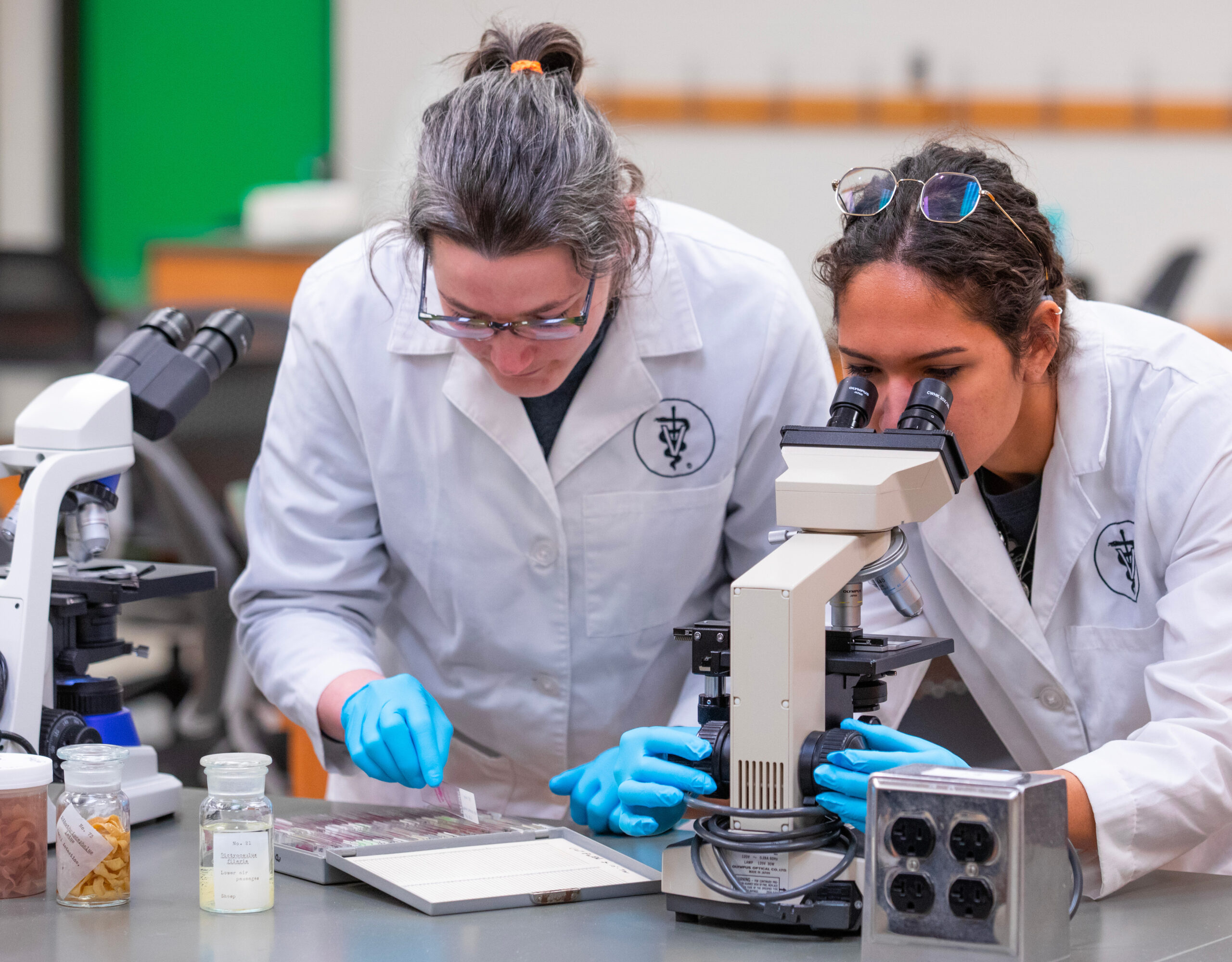Departmental Mission and Expertise Focus
Veterinary pathology provides a critical link between the basic and clinical sciences. Our faculty fill essential roles in teaching veterinary and graduate students, diagnosis of animal diseases, and scientific research.



